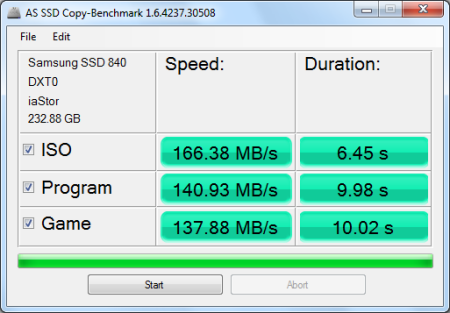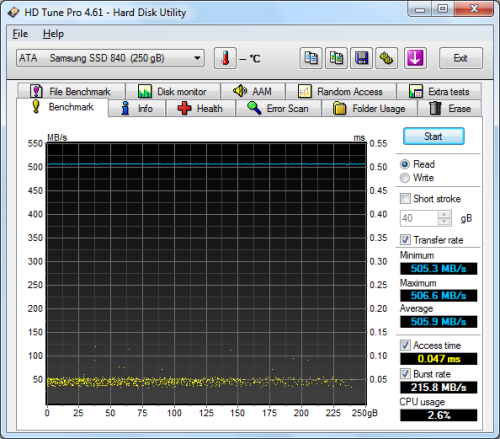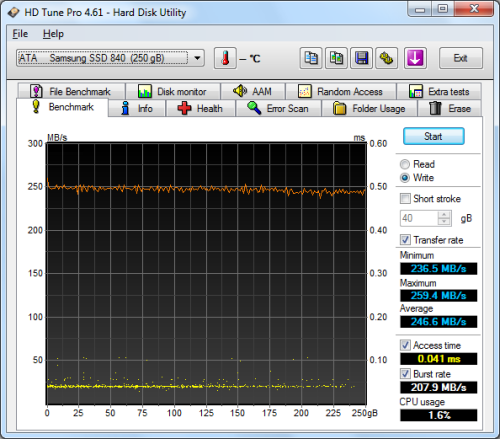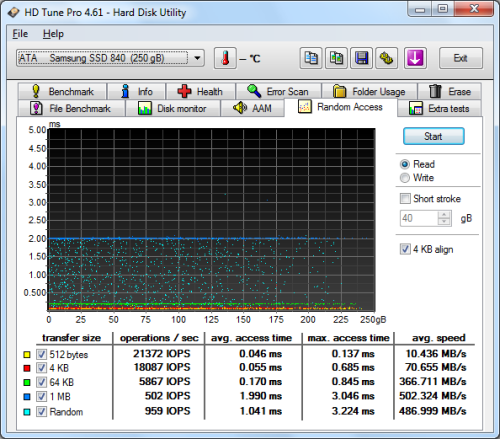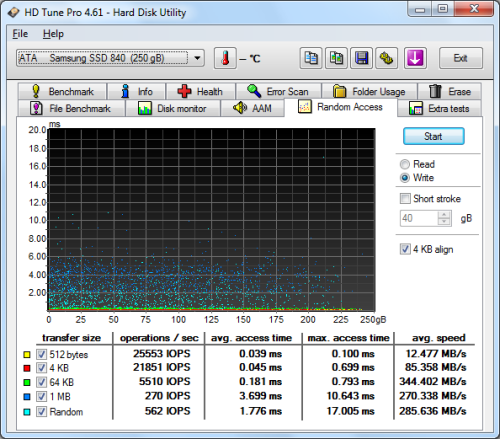AS SSD:
AS SSD is a relatively new benchmark designed specifically for solid state drives. The application contains five synthetic tests used to determine the sequential and random read and write performance of a drive.
AS SSD also includes a copy benchmark. This test copies an ISO (two large files), program (many small files) and game (small and large files), returning the speed and duration of each.
HD Tune Pro 4.61:
Next, I ran a series of tests using HD Tune Pro. This hard disk utility measures a drive's performance by testing its sequential read and write speeds as well as its access time, burst rate and CPU usage. For this review, I'm also going to use it to benchmark the SSD 840 EVO's random read and write speeds, random access times and the number of operations per second.
 Samsung SSD 840 Evo 750GB - HD Tune Read Benchmark |
 Samsung SSD 840 Evo 750GB (RAPID Mode) - HD Tune Read Benchmark |
 Samsung SSD 840 Evo 750GB - HD Tune Write Benchmark |
 Samsung SSD 840 Evo 750GB (RAPID Mode) - HD Tune Write Benchmark |
The SSD 840 EVO performed very well when benchmarked with HD Tune. The drive had average read and write speeds of 498.3 MB/s and 411.9 MB/s, respectively, and a burst rate of 277.6 MB/s when reading. Surprisingly, RAPID mode had very little impact on the drive's read speed. However, it was slightly faster when writing.
 Samsung SSD 840 Evo 750GB - HD Tune Random Access Read |
 Samsung SSD 840 Evo 750GB (RAPID Mode) - HD Tune Random Access Read |
 Samsung SSD 840 Evo 750GB - HD Tune Random Access Write |
 Samsung SSD 840 Evo 750GB (RAPID Mode) - HD Tune Random Access Write |
The SSD 840 EVO didn't disappoint when doing random reads and writes. When reading 4KB blocks, it reached 20,653 IOPS and had an average speed of 80.676 MB/s. The drive was slightly faster when writing, reaching 21,296 IOPS with an average speed of 83.190 MB/s. As you can see, RAPID mode gave the SSD 840 EVO's random read and write performance a considerable boost. With it enabled, the drive reached 148,875 random read IOPS and 137,268 random write IOPS.









